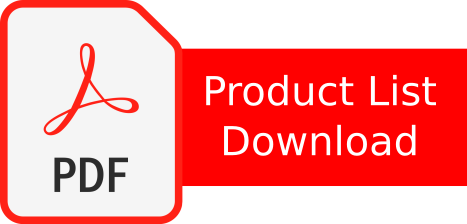How to buy medicines in wholesale in India
Title: A Comprehensive Guide to Buying Medicines Wholesale in India
Abstract:
This comprehensive guide provides valuable insights and step-by-step instructions on how to buy medicines in wholesale in India. It covers various aspects such as understanding the wholesale market, legal and regulatory requirements, finding reliable wholesale suppliers, the process of purchasing medicines in bulk, quality control measures, and tips for successful wholesale medicine procurement. By following this guide, individuals or entities can navigate the wholesale medicine procurement process effectively and ensure a streamlined supply chain for their pharmaceutical needs.
1. Introduction
– Importance of wholesale medicine procurement in India
– Benefits of buying medicines in bulk
– Overview of the wholesale medicine market in India
2. Understanding the Legal and Regulatory Landscape
– Familiarizing oneself with the regulatory bodies and guidelines governing pharmaceutical distribution and wholesale trade in India
– Understanding the licensing and registration requirements for wholesale medicine procurement
– Complying with drug storage and transportation regulations
3. Identifying Reliable Wholesale Medicine Suppliers
– Researching and identifying authorized wholesale medicine suppliers in India
– Verifying the authenticity and reliability of the suppliers through their licenses, certifications, and track record
– Exploring options such as authorized distributors, pharmaceutical companies, and established wholesalers
4. Establishing Business Relationships
– Contacting potential wholesale medicine suppliers and initiating business inquiries
– Establishing rapport and negotiating terms and conditions, including pricing, payment terms, and delivery schedules
– Evaluating the supplier’s inventory management capabilities and their ability to meet your specific requirements
5. Procurement Process
– Developing a procurement plan based on your business needs and market demand
– Placing orders with the selected wholesale medicine suppliers
– Ensuring accurate documentation, including purchase orders, invoices, and delivery receipts
6. Quality Control and Assurance
– Implementing quality control measures to ensure the authenticity, safety, and efficacy of the purchased medicines
– Checking for proper drug packaging, labeling, and expiry dates
– Verifying the integrity of the supply chain to prevent counterfeit or substandard medicines
7. Storage and Inventory Management
– Creating appropriate storage facilities that comply with temperature and humidity requirements
– Implementing proper inventory management practices, including first-in, first-out (FIFO) method, batch tracking, and stock rotation
– Monitoring and maintaining appropriate stock levels to avoid shortages or excess inventory
8. Ensuring Supply Chain Efficiency
– Establishing effective communication channels with wholesale medicine suppliers to receive timely updates on product availability, pricing, and changes in regulations
– Streamlining the supply chain process to minimize lead times and ensure prompt delivery of medicines
– Implementing technology solutions, such as inventory management software, to enhance efficiency and accuracy
9. Price Negotiation and Cost Management
– Negotiating favorable pricing and discounts with wholesale medicine suppliers based on volume and long-term partnership prospects
– Implementing cost management strategies, such as analyzing market prices, optimizing procurement quantities, and exploring alternative suppliers
10. Regulatory Compliance and Documentation
– Maintaining proper records of wholesale medicine purchases, invoices, and related documentation as required by regulatory authorities
– Ensuring compliance with tax regulations, including Goods and Services Tax (GST) in India
– Regularly updating and renewing licenses and registrations to comply with regulatory requirements
11. Building Long-Term Relationships
– Nurturing relationships with wholesale medicine suppliers based on trust, reliability, and mutual benefits
– Seeking feedback and resolving any issues or concerns promptly and professionally
– Exploring opportunities for collaboration, such as participating in loyalty programs or joint marketing initiatives
12. Tips for Successful Wholesale Medicine Procurement
– Conducting market research to stay updated on the latest pharmaceutical trends and demand patterns
– Diversifying suppliers to mitigate risks and ensure a consistent supply chain
– Monitoring competitor pricing and market dynamics to make informed purchasing decisions
– Investing in continuous professional development and staying updated with industry advancements
13. Adapting to Changing Market Dynamics
– Monitoring regulatory changes and adapting procurement processes accordingly
– Embracing technological advancements, such as online wholesale platforms or digital ordering systems
– Keeping abreast of market trends, consumer preferences, and new product launches to anticipate demand
14. Quality Assurance and Product Authentication
– Collaborating with reputable pharmaceutical manufacturers and suppliers to ensure the authenticity and quality of medicines
– Implementing measures to detect and prevent counterfeit or substandard products
– Maintaining a vigilant approach towards quality assurance and promptly addressing any quality-related issues
15. Ensuring Ethical Practices and Compliance
– Upholding ethical standards in wholesale medicine procurement, including adhering to pricing regulations and avoiding illegal or unapproved products
– Complying with industry codes of conduct and promoting transparency and integrity in business dealings
– Staying updated with evolving ethical guidelines and regulatory requirements
16. Continuous Improvement and Evaluation
– Regularly reviewing and evaluating the wholesale medicine procurement process for efficiency and cost-effectiveness
– Seeking feedback from stakeholders, including healthcare professionals and end-users, to identify areas for improvement
– Embracing innovation and exploring new strategies to enhance the wholesale medicine procurement experience
17. Conclusion
Procuring medicines in wholesale in India requires a thorough understanding of the legal and regulatory landscape, identifying reliable suppliers, implementing quality control measures, and maintaining efficient supply chain management. By following this comprehensive guide, individuals or entities can navigate the wholesale medicine procurement process effectively and ensure a streamlined supply of pharmaceutical products. Adhering to ethical practices, staying updated with industry trends, and continuously improving the procurement process will contribute to the success of wholesale medicine procurement in India.


